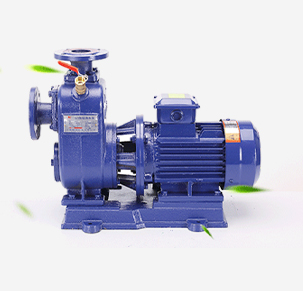Malayalam
- Afrikaans
- Albanian
- Amharic
- Arabic
- Armenian
- Azerbaijani
- Basque
- Belarusian
- Bengali
- Bosnian
- Bulgarian
- Catalan
- Cebuano
- Corsican
- Croatian
- Czech
- Danish
- Dutch
- English
- Esperanto
- Estonian
- Finnish
- French
- Frisian
- Galician
- Georgian
- German
- Greek
- Gujarati
- Haitian Creole
- hausa
- hawaiian
- Hebrew
- Hindi
- Miao
- Hungarian
- Icelandic
- igbo
- Indonesian
- irish
- Italian
- Japanese
- Javanese
- Kannada
- kazakh
- Khmer
- Rwandese
- Korean
- Kurdish
- Kyrgyz
- Lao
- Latin
- Latvian
- Lithuanian
- Luxembourgish
- Macedonian
- Malgashi
- Malay
- Malayalam
- Maltese
- Maori
- Marathi
- Mongolian
- Myanmar
- Nepali
- Norwegian
- Norwegian
- Occitan
- Pashto
- Persian
- Polish
- Portuguese
- Punjabi
- Romanian
- Russian
- Samoan
- Scottish Gaelic
- Serbian
- Sesotho
- Shona
- Sindhi
- Sinhala
- Slovak
- Slovenian
- Somali
- Spanish
- Sundanese
- Swahili
- Swedish
- Tagalog
- Tajik
- Tamil
- Tatar
- Telugu
- Thai
- Turkish
- Turkmen
- Ukrainian
- Urdu
- Uighur
- Uzbek
- Vietnamese
- Welsh
- Bantu
- Yiddish
- Yoruba
- Zulu
Telephone: +86 13120555503
Email: frank@cypump.com
ഒക്ട് . 21, 2024 23:56 Back to list
sewer injection pump
Understanding Sewer Injection Pumps An Essential Component of Wastewater Management
Sewer injection pumps play a critical role in modern wastewater management systems. These specialized pumps are designed to transport sewage and wastewater from homes, businesses, and industrial facilities to treatment plants, where the waste can be processed and treated properly. Understanding the function, types, and importance of sewer injection pumps can provide insights into their essential role in protecting public health and the environment.
At its core, a sewer injection pump is a mechanical device that moves sewage, which can include not only human waste but also various forms of debris and wastewater. These pumps work by creating suction to draw wastewater from its source and then forcing it through pipes to reach a higher elevation, typically where a municipal sewer line exists. This process is necessary because many residential and commercial properties are situated below the level of the main sewer lines, making it impossible for gravity alone to facilitate the flow of wastewater.
There are various types of sewer injection pumps, each suited for different applications. The most common types include centrifugal pumps, diaphragm pumps, and submersible pumps. Centrifugal pumps operate by converting rotational energy into hydrodynamic energy, resulting in a flow that moves wastewater effectively. Diaphragm pumps, on the other hand, use a flexible diaphragm to create pressure and suction, making them particularly effective for handling abrasive or viscous materials. Submersible pumps are designed to operate underwater, often placed in a sump pit, allowing them to efficiently manage flooded environments.
sewer injection pump

The significance of sewer injection pumps extends beyond mere transportation of wastewater. They are integral to preventing overflows and backups in sewer systems, which can lead to environmental hazards and public health risks. When systems overflow, untreated sewage can contaminate local water bodies, posing risks to ecosystems, wildlife, and communities. By utilizing sewer injection pumps, municipalities can effectively manage excess stormwater and wastewater, ensuring that treatment facilities can handle the load without overwhelming the system.
Moreover, regular maintenance of sewer injection pumps is crucial for their reliable operation. Neglecting these pumps can result in mechanical failures that lead to costly repairs and potential environmental incidents. Routine inspections, cleaning, and timely replacement of worn components can significantly enhance the lifespan and efficiency of these pumps. Operators should also monitor for signs of wear and tear, such as unusual noises, vibrations, or leaks, which may indicate impending failure.
As urban areas continue to grow, the demand for efficient wastewater management solutions becomes increasingly vital. Sewer injection pumps are essential in accommodating this growth by ensuring that our infrastructure can handle increasing volumes of waste without compromising public health. Additionally, advancements in pump technology and automation are enhancing the efficiency of these systems, offering smarter solutions for monitoring and managing sewer systems.
In conclusion, sewer injection pumps are indispensable for effective wastewater management. They facilitate the safe transport of sewage to treatment facilities, prevent environmental contamination, and protect public health. As communities evolve and the need for robust infrastructure grows, the role of these pumps will remain crucial in maintaining a hygienic and sustainable environment. Understanding their function and importance is key for any stakeholder in the wastewater management field.
-
High-Efficiency Submersible Effluent Pump for Sewage & Wastewater Solutions
NewsJul.08,2025
-
High Quality CH Warman Slurry Pump Factory - Leading Horizontal Slurry Pump Supplier
NewsJul.08,2025
-
Hot Sale Chemical Circulating Pump – Efficient & Durable Slurry Circulating Pump Solutions
NewsJul.08,2025
-
High-Efficiency Submersible Dredge Pump for Sand & Gravel Durable Dredge Slurry Pumps Solutions
NewsJul.07,2025
-
Wholesale Slurry Pump Impeller Supplier – High-Quality & Efficient Pump Parts for Enhanced Performance
NewsJul.07,2025
-
High-Efficiency Water Submersible Pumps Reliable Water Pump for Potable Water Supply
NewsJul.06,2025










